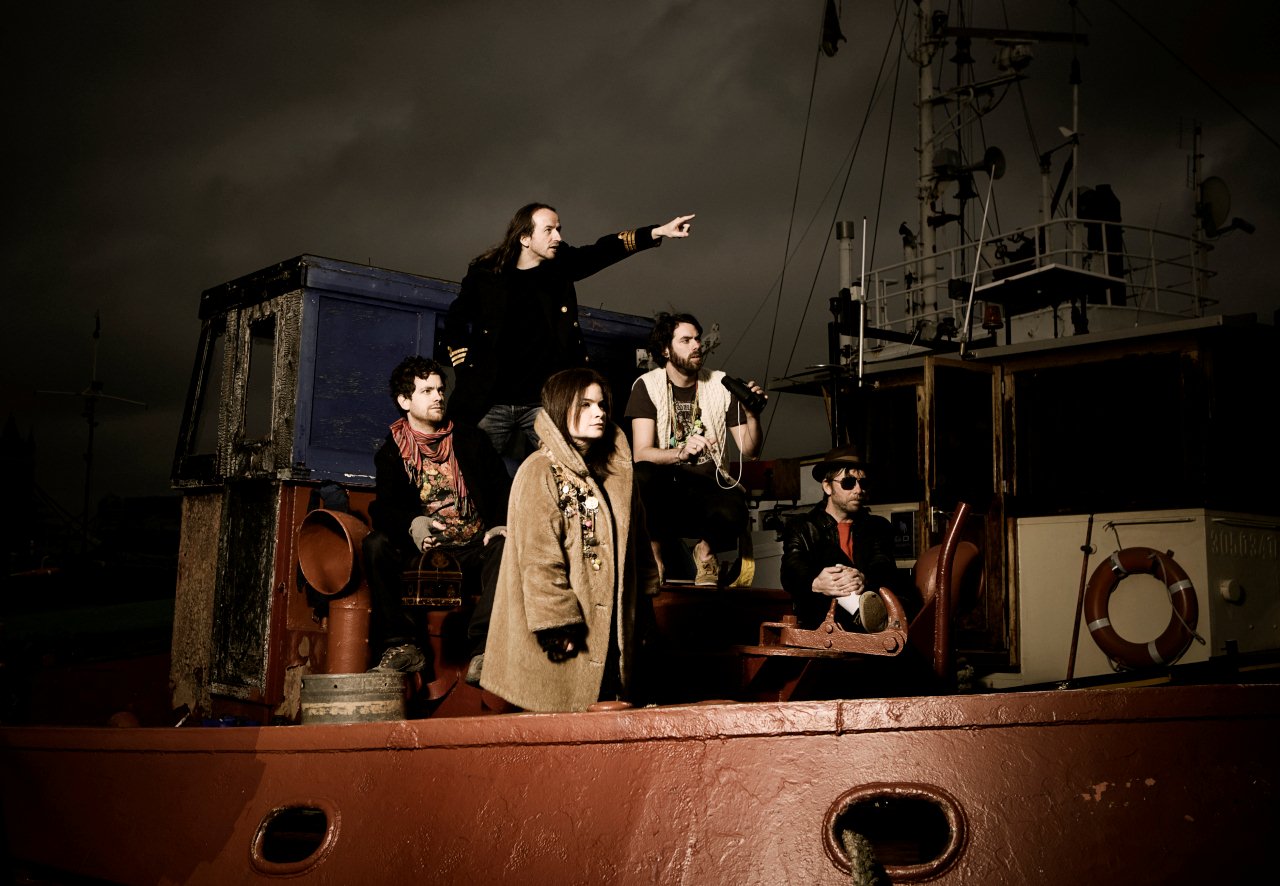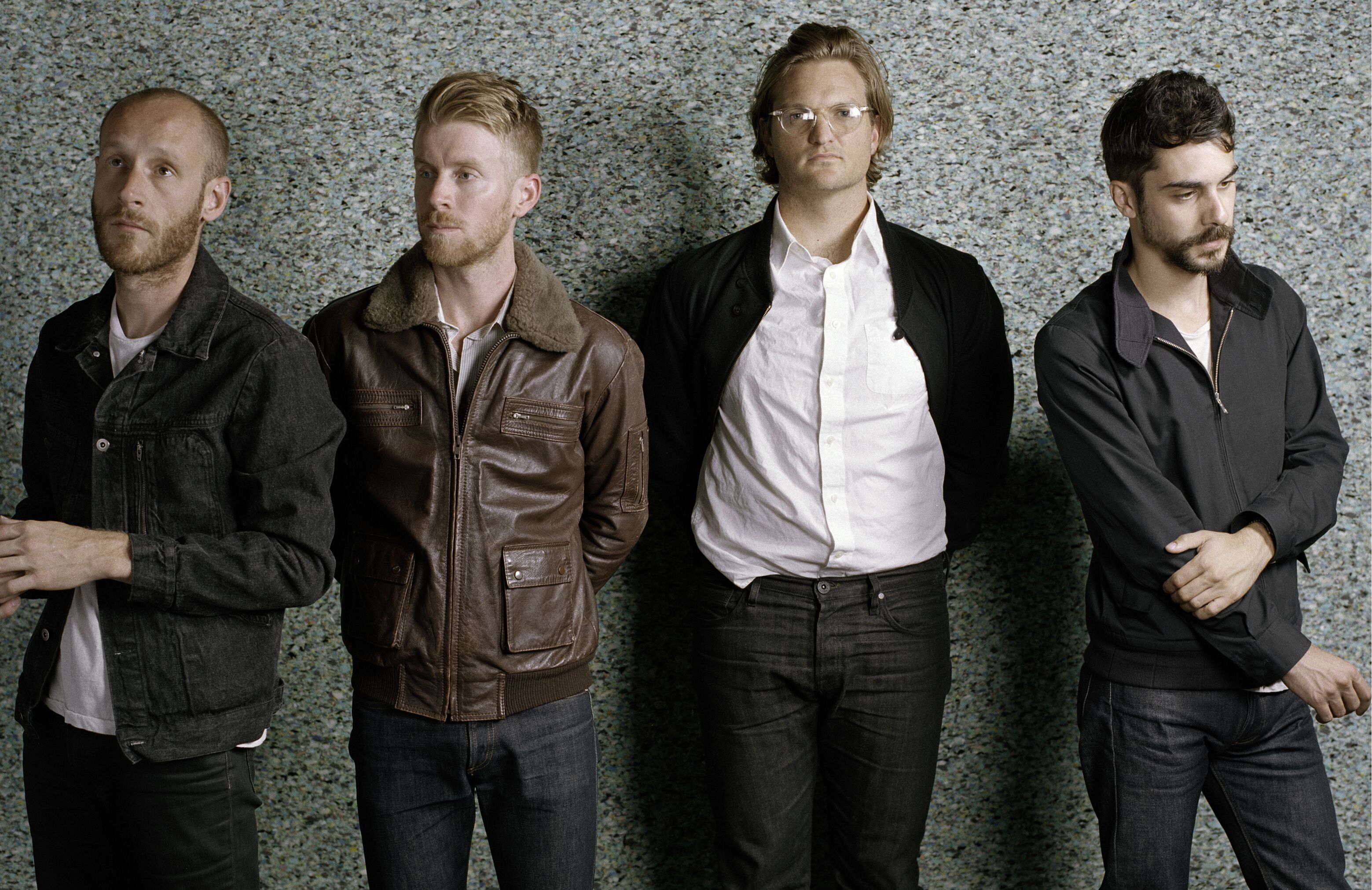While being recognised as pioneers of a novelty sound can certainly be flattering, there comes a time in any band’s life where they want to outgrow the buzzwords.
While being recognised as pioneers of a novelty sound can certainly be flattering, there comes a time in any band’s life where they want to outgrow the buzzwords. Such is the case with British collective Tunng; once identified as being at the forefront of the genre-fusing movement known as ‘folktronica’, these days they would prefer to be regarded as simply a band.
"We definitely wouldn’t have given ourselves that (folktronica) name," says songwriter and founding member Mike Lindsay. "Although I suppose it quite accurately describes the idea of folk music mixed with electronica… And maybe that was appropriate a few years ago, when there was some kind of movement going on that we were apparently part of, even if we didn’t know anything about it… Certainly, that’s what our first record literally was. But," he considers, "I think things have moved on quite a bit since then, and there are all kinds of genres that get mixed together in our music, so that I’m really not sure what you’d label it anymore, other than ‘Tunng’. Call it what you will!"
Tunng started life as a partnership between Lindsay and fellow songwriter and producer Sam Genders, with the band at large existing simply to bring the pair’s experimentation into the live arena. However, in the time between Tunng’s first three albums (released within a year of each other from ’05 to ’07) and the 2010 effort …And Then We Saw Land – regarded by many critics as the group’s most cohesive and mature effort – significant changes occurred within the dynamic of their membership. One of these was the departure of Genders (who was, as Lindsay puts it, ‘always in and out’ from the group’s touring line-up anyway) to concentrate on his solo projects. More significant, though, was the culmination of Tunng’s evolution into a truly collaborative band, with the songwriting role being shared between members.
Before …And Then We Saw Land could be completed, this collaborative, newly sans-Genders version of Tunng underwent a trial-by-fire of sorts, as they hit the road for an extensive tour with Malian desert-blues troupe Tinariwen. "It didn’t really inspire this record," Lindsay explains, "so much as kind of inspire us as people, in the sense of changing what we knew, and challenging us to enter into a collaboration with a group of amazing musicians from a completely different culture.
"It was such a great experience, because we’d had some line-up changes before then, and it sort of pushed us into new areas. It really brought us together, again, as a band. And I think after that we got really confident and excited about working on the new album."
One of the most obvious distinguishing features of …And Then We Saw Land is the difference in how the band have approached vocals. This isn’t just in terms of who takes the ‘lead’ vocal role – now ostensibly claimed by Becky Jacobs – but also in terms of how much richer the vocal arrangements are, with harmonies and gang vocals now abounding where stark solo vocals once reigned.
"Becky’s always been singing a lot more prominently in the live shows than on previous records anyway, so it seemed like quite a natural progression to bring her up front," Lindsay says. "I’ve been singing less and less on the records and in the live shows as well. And you know, there’s a lot of unison singing on this record – we even got a 20-piece walk-in drunken choir to sing on the choruses. I really love that, and the power that it brings.
"I think," he continues, "this record is bigger-sounding in general … and it’s sort of a bigger live sound than we ever used to have as well. There’s six of us now, including a drummer – named Simon – which we’ve never had before."
And what of Genders… does he still maintain any relationship with the band he helped create?
"Yeah, in fact, I just had lunch with him today actually. And he joined us for this big London show – this kind of end-of-year extravaganza where we curated the whole night – where he came on stage and played a few tunes with us. It’s all very amicable; we understand he just wanted to get away from the touring and stuff. But he’s a really amazing songwriter with a great voice, and he’s been working with some of the guys from Moloko, who are producing him. He’s just released an EP, and he’s working towards an album, which he should have out this year. I’ve heard a couple of tracks – it’s going to be great, I think. And not at all like a folk record, which is quite exciting."
And while Mike certainly has no intention of abandoning Tunng, he does admit he has been inspired to pursue a solo venture of his own.
"It’s an idea that I had recently…" he explains. "Because we went out to Iceland for a week, played there for the Airways festival. I’ve been going back there a few times, and I found this place – this little fishing village in the mountains of the north – called Husivik. And I was going to build a little mini-studio in a cabin out there for a couple of months, and write and record something inspired by that place, using instruments from that place."
"I’m not sure of the sound yet… I don’t think it will sound massively like Tunng. But then again, that’s what I do, so maybe it will!" he laughs. "And I might get some ideas while I’m there that I can use for the next Tunng record as well.
"Everyone else is sort of working on their own titbits for the next record, and I think the plan is to come back and throw them all together in the studio. We’re probably looking at June, or the second half of this year, for getting an album together, and then early next year for putting it out."
When Tunng were last in Australia in 2008, a full gig itinerary afforded Lindsay very little time to play tourist (although he does recall ‘standing on a surfboard for about three seconds’ on a beach somewhere near Melbourne). This year, though, he intends to come down a bit ahead of the band’s relatively short tour run, and find an opportunity to really take in some of the surrounds.
"I’ve got a friend in Newcastle," he explains. "I’m going to hang out with him, and then get a car and go up to the Blue Mountains, really soak it up. So by the time we come to you, we’ll be eating sausages and drinking Fosters… isn’t that what you do?"
TUNNG play The East Brunswick Club on Tuesday February 22 – tickets from The East, 9388 9794 and eastbrunswickclub.com …And Then We Saw Land is out now through Other Tongues.
BY JESSE SHROCK







